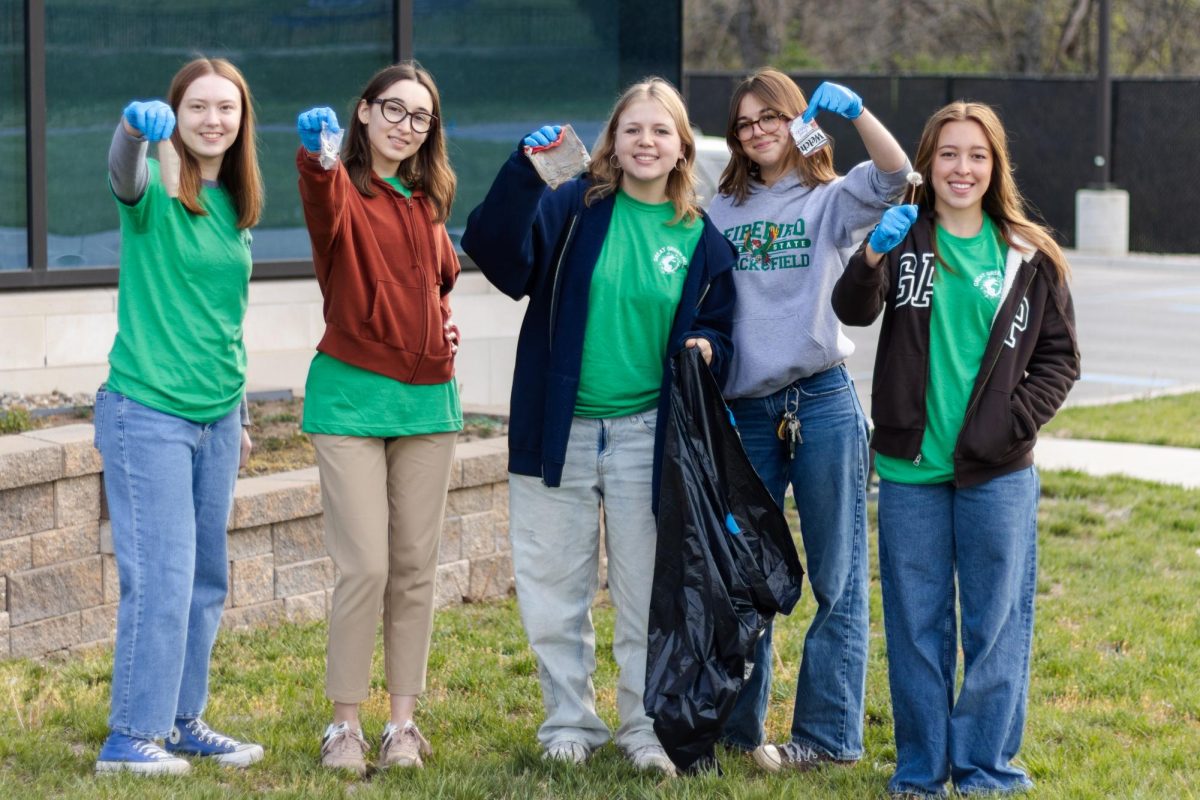FEATURE: Flu impacts midterms
Students and staff experience difficulties with influenza during finals
In order to prevent the spread of disease, sophomore Lola Stuhlsatz washes her hands. Stuhlsatz started taking extra precautions to avoid illness after contracting COVID-19 ahead of finals. “Hand washing is very important, you have no idea what was on the surface you just touched,” Stuhlsatz said.
February 18, 2023
For many people, exams create feelings of stress. Oftentimes, this stress can be chalked up to something as simple as nerves or mere procrastination. However, the spread of seasonal illness in school communities also holds the potential to dampen the spirits and grades of any student.
In November and December, seasonal illnesses such as influenza and COVID-19 made its way through the student body and the Lawrence community at large.
“The numbers were that hundreds more students were absent than they had been,” nurse Shelly Bennett said.
Bennett went on to explain the correlation between illness rates and a lack of widespread masking in schools.
“Last year at this time, we were all still masked, and influenza was pretty much nonexistent,” Bennett said.
She said that this year, without the widespread use of face masks, the student body saw a greatly differing outcome.
According to the Kansas Department of Health and Environment, medical visits for influenza-like illnesses increased by 7% in December of 2022, in comparison to years past. This data does not account for the percentage of the Free State and Lawrence community that suffered from undocumented illnesses due to the lack of a medical visit.
Stress, exhaustion and the pressure of finals only worsened the communal experience with fall semester finals. As explained by Healthline, prolonged stress keeps the body in a constant state of readiness for physical action, which prevents any rest or renewal.
“It sent some of them into even more sickness, because stress was going through the roof, especially if it’s seven classes that they’re trying to balance and make up,” math teacher Alyssa Barratt said.
While stress alone held the potential to send students into repeated bouts of illness, the mere exhaustion of needing to stay on top of school work made its mark as well.
Speaking on her personal experience with illness, sophomore Lola Stuhlsatz said the toll exhaustion took on her and her study habits.
“A lot of the time I should have studied for finals, but I didn’t because I was just so tired,” Stuhlsatz, who had COVID-19 over finals, said.
Stuhlsatz and other sick students took semester finals online, but the added element of stress and exhaustion held the potential to regenerate illness.
Barratt said the struggles students faced with finals increased their responsibility to make up and learn material.
“What it did was kind of prolong this semester for some of them,” Barratt said. “So if they missed the day, like the first day of finals . . . they were having to stay after school the next day and make it up.”
Furthermore, Barratt stated that she also saw some students having to come in the day before school resumed in January to take their class finals.
Ultimately, this school year held the potential to take a large toll on students, personally and academically during finals season, due to the increased number of illnesses. However, illness did not necessarily create any irreparable impacts, and Barrett said that success might have simply “required some more effort than what they [students] were used to.”









